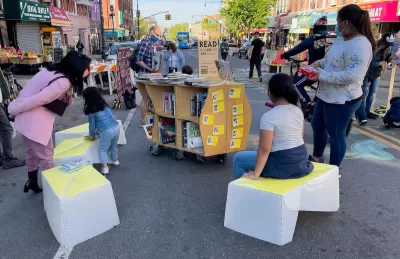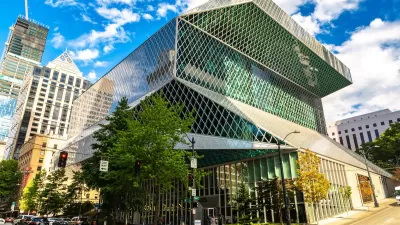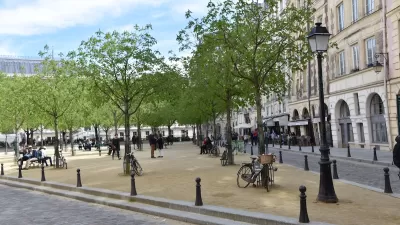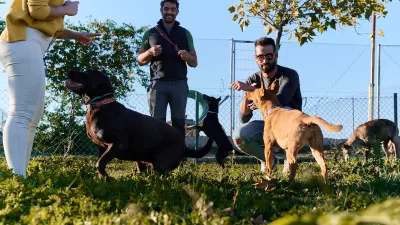Public parks, libraries, and other social infrastructure foster community connections and stave off loneliness. Why are they increasingly deprioritized in civic life?

In a piece for the Deseret News, Mariya Manzhos, explaining her own experiences with public spaces during the pandemic and early motherhood, highlights the ways that public parks and other ‘social infrastructure’ are shown to reduce social isolation and foster a sense of community. For Manzhos, easy access to local libraries, parks, and shops alleviates some of the inconveniences of cramped urban life.
According to sociologist Eric Klinenberg, social infrastructure “is especially beneficial for children, the elderly and those who are limited to move beyond the places where they live. It’s the communal gathering places that might also foster a sense of civic responsibility.”
Also known as ‘third places,’ communal gathering places have long been touted by urbanists and sociologists as an important part of urban communities, fostering connection and interaction. “Studies have shown that just having a diversity of folks in your life … more informal and infrequent and unplanned, can be really protective for health and well-being,” says Jessica Finlay, an assistant professor in the Institute of Behavioral Science and the department of geography at the University of Colorado, Boulder.
FULL STORY: Can public parks save us from loneliness?

Maui's Vacation Rental Debate Turns Ugly
Verbal attacks, misinformation campaigns and fistfights plague a high-stakes debate to convert thousands of vacation rentals into long-term housing.

Planetizen Federal Action Tracker
A weekly monitor of how Trump’s orders and actions are impacting planners and planning in America.

In Urban Planning, AI Prompting Could be the New Design Thinking
Creativity has long been key to great urban design. What if we see AI as our new creative partner?

King County Supportive Housing Program Offers Hope for Unhoused Residents
The county is taking a ‘Housing First’ approach that prioritizes getting people into housing, then offering wraparound supportive services.

Researchers Use AI to Get Clearer Picture of US Housing
Analysts are using artificial intelligence to supercharge their research by allowing them to comb through data faster. Though these AI tools can be error prone, they save time and housing researchers are optimistic about the future.

Making Shared Micromobility More Inclusive
Cities and shared mobility system operators can do more to include people with disabilities in planning and operations, per a new report.
Urban Design for Planners 1: Software Tools
This six-course series explores essential urban design concepts using open source software and equips planners with the tools they need to participate fully in the urban design process.
Planning for Universal Design
Learn the tools for implementing Universal Design in planning regulations.
planning NEXT
Appalachian Highlands Housing Partners
Mpact (founded as Rail~Volution)
City of Camden Redevelopment Agency
City of Astoria
City of Portland
City of Laramie





























